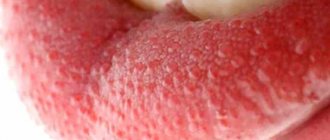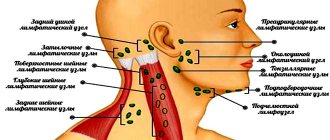Article navigation: Causes of the inflammatory process Inflammatory process during pregnancy Prosthetics and installation of crowns Anti-inflammatory therapy Features of choosing toothpaste and brushes Preventive measures Antiseptic rinses against inflammation Gels and ointments against the inflammatory process Toothpastes against inflammation of the gums Traditional methods of treating inflammation of the gums Prices for treating inflammation gums in our clinic
Content:
- When do you need to augment your gums?
- Recovery methods
- Correction materials
- Build-up during recession 4.1. In what other cases is flap surgery performed?
- Extension during the period of preparation for prosthetics and installation of implants
- Providing aesthetics for shark and gummy smiles
- Changing the base line of the incisors
- Restoring gum volume after molar tooth extraction
- Features of the postoperative period
Exposed tooth necks, a gummy smile and some other dental problems can be corrected through surgery.
Gingivoplasty is an effective method for improving the aesthetics of the lower third of the face and improving the functionality of the periodontium. Let's look at what gum augmentation is, how it works, in what situations it is used, and what complications may arise after surgery.
Causes of the inflammatory process
Everyone has encountered the problem of gum inflammation: for some the process was more pronounced, for others less. However, the reaction to the inflammatory process is different - some people try not to make the disease worse and go to the dentist, while others let things take their course, hoping that “it will go away on its own.” Such an irresponsible attitude towards one’s health can ultimately lead to complications that will be difficult to cope with even with the help of a doctor.
To prevent inflammatory gum diseases, you need to know what can cause inflammation and what symptoms can be seen that it already exists.
What could be the reasons
1. Microbes
The human oral cavity contains a huge number of microorganisms that under normal conditions do not pose any danger. The body's general immune system and local immunity cope with the regulation of their numbers, growth and health effects until conditions favorable for microbes occur, when they become a serious threat.
2. Insufficient or poor oral care
In the absence of regular brushing of teeth, or the wrong choice of toothbrush, toothpaste, elixir or mouthwash, plaque accumulates on the surface of the teeth, which serves as an excellent breeding ground for pathogenic microorganisms.
3. Presence of tartar
Soft plaque under the influence of bacterial waste products turns into hard tartar. The appearance of these solid formations contributes to the development of the inflammatory process; The gums become injured and “sag,” and pathogens penetrate into the deeper layers of the soft tissue of the gums.
4. Other reasons
In addition to the above reasons, inflammatory gum diseases can occur:
- due to improper prosthetics and dental fillings
- smoking and vitamin deficiencies
- diseases of the gastrointestinal tract and endocrine system
Also, gum inflammation can be caused by a hereditary predisposition or weakening of the body's protective functions.
How do the symptoms manifest?
Inflammation does not occur immediately and is strong - it occurs in stages:
- swelling and redness of the gums, excessively soft tissue (this can be felt when palpating with a finger or touching a toothbrush)
- blood vessels are weakened, which is evident from the appearance of blood on the brush or dental floss (at first these are only traces, but later blood can appear at the slightest touch even with the tongue to the gum)
- tooth sensitivity increases, as the gums sag, the neck of the tooth is exposed, and since it is not as protected as the crown by enamel, any impact is noticeable
- the development of the inflammatory process can lead to the fact that the slightest irritation becomes a source of pain: it becomes difficult to chew food, and the contact of cold or hot, sour or sweet food on the inflamed area sometimes causes unbearable pain
- the surface and outline of the gums look uneven, the tissues become loose
- Bad breath becomes a constant unpleasant companion, which cannot be eliminated either by dental elixirs or by brushing your teeth.
General factors
The occurrence of inflammatory gum diseases is caused by a number of factors that weaken the functioning of the human immune system and make the gums susceptible to pathogens attacking them (gum inflammation begins - gingivitis). These factors are often:
- periods of hormonal changes (puberty, pregnancy, menstruation or menopause)
- stressful situations
- disorders of the body's protective functions
- active smoking
Inflammation of the gums can be caused by a disturbance in the composition of saliva, the balance of the bacterial flora in diabetes. Inflammatory gum disease can be caused by a lack of vitamins.
If these risk factors are present in your life, you should carefully monitor the formation of tartar and remove these unwanted deposits as quickly as possible.
Local factors
In addition to general factors, the occurrence of gingivitis is caused by poor oral care, dental plaque, poorly placed fillings and crowns, poor prosthetics, old fillings, malocclusion and the presence of orthodontic structures in the mouth that make normal teeth cleaning difficult. Increasingly growing deposits on teeth contribute to a greater accumulation of pathogenic microorganisms. Periodontal pockets may appear, which means inflammation moves to the gums.
When do you need to augment your gums?
Indications for surgical therapy include:
- anomalies in the structure of the periodontium, frenulum, location of the fangs and incisors;
- congenital disorders of the jaws;
- exposure of roots as a result of inflammatory disease of the oral cavity;
- atrophy of the mucous membranes in the area of individual units, provoked by periodontitis, gingivitis;
- preparation for complex orthopedic treatment;
- restoration of the integrity of the area after mechanical damage, tooth extraction;
- preparation for implantation;
- elimination of mistakes made during previous treatment.
If the root is exposed and the tooth looks unnaturally long, gum augmentation will most likely be necessary. You should not approach the problem purely from the standpoint of aesthetics. It is important to understand that an insufficiently secured canine or incisor can fall out if dental treatment is not carried out in a timely manner.
Gels and ointments against the inflammatory process
To treat periodontitis, applications with various therapeutic agents are used. Each has its own recommendations for use, however, during all procedures one should strictly adhere to one rule: hands must be clean (processing can be carried out with cotton swabs)
After eating, you should brush your teeth and squeeze out a small amount of gel from the tube. Apply the product to the affected part of the gum, then do not eat or drink for half an hour. You should not take a lot of gel or ointment: the effect will not increase, and a reaction to the swallowed drug may follow.
However, no ointments or gels used at home can replace dental treatment. They can become a good auxiliary component of a complex of treatment measures prescribed by a doctor. They can relieve discomfort, prevent gingivitis or periodontitis, but cannot replace treatment.
Recovery methods
There are the following options for gum extension:
- Vestibuloplasty . A surgical method for correcting the oral cavity, consisting of redistribution of mucous membranes. It is aimed at deepening the space between the lip and teeth. Helps get rid of multiple gum recessions and exposure of dental roots. It is carried out for speech therapy, cosmetic and orthodontic indications.
- Gingivoplasty . It is used for uneven gingival contours, recession, and pathological periodontal pockets. Helps improve the aesthetics of the lower part of the face and remove an unsightly shark smile. The dentist-surgeon carefully excises excess tissue and transplants it into “deficient” areas. The intervention is considered quite simple.
The specialist decides what type of correction to apply, taking into account the existing diagnosis and the severity of the disorder, the characteristics of the client’s health condition
Antiseptic rinses against inflammation
They are good at removing microbes and the toxins they produce, partially destroying pathogens, protecting the enamel and reducing the enzymatic activity of various types of rinses.
Rinses used for inflammatory processes can be divided into:
- antimicrobial action;
- anti-inflammatory action;
- mixed (or combined) action.
Antimicrobial solutions include antiseptics or antibiotics. They don’t just temporarily remove inflammation, they act on the root cause of inflammation – pathogenic microflora.
Important note: when using rinses with anti-inflammatory agents, it is recommended to simultaneously use gum gels containing antibiotics or antiseptics.
How not to do it
Patients often self-medicate and try to get rid of gum disease with hydrogen peroxide. Despite the fact that this is a good antiseptic, it is not suitable for use in the treatment of inflammatory gum diseases and does not give any effect other than foam in the mouth. It is not possible to rinse periodontal pockets on your own using a syringe; certain knowledge and skills are required.
Correction materials
To compensate for the lack of gingival structures, you need to get material for transplantation from somewhere. This may be the patient's own flap obtained from the soft palate. It is also permissible to use an artificially created barrier membrane or a special collagen matrix.
It is believed that natural “blanks” are a more preferable option. They take root well, which means the likelihood of rejection is minimized, and the recovery period after the intervention is significantly reduced.
Building up during a recession
Many periodontal diseases lead to exposed tooth roots. Then the smile becomes ugly. The coronal part of the units involved in the pathological process appears excessively long. Suitable conditions are created for the active spread of caries.
Unfortunately, it is impossible to close or at least somehow disguise the recession on your own. In such a situation, only a dental surgeon can help. Therefore, you should not waste time studying traditional recipes.
If the disorder is caused by incorrect placement of the frenulum in a child, plastic surgery is indicated. It is performed under local anesthesia. As soon as the normal length of the operated fold is restored, the doctor works with the gum and eliminates its deficiency using a natural/artificial flap graft.
In what other cases is flap surgery performed?
In addition to shortened frenulum and recession, the flap technique is used if:
- the depth of periodontal pockets exceeds five millimeters;
- Gum hypertrophy caused by advanced inflammation was diagnosed;
- moderate/severe periodontal disease was detected;
- teeth are crowded and overlap each other;
- a significant lack of periodontal layers is recorded;
- dental roots are exposed;
- individual units are loose;
- the jaw bones began to collapse, the teeth were weakly held in the sockets.
Returning the original volume to the operated area creates optimal conditions for maintaining oral health and preventing the spread of infection. The doctor administers a local anesthetic and makes an incision in the area of the exposed roots. Removes necrotic accumulations and dead epithelial cells.
Then he takes a flap from the palate and transplants it into the problem area. Suturing the wound. As soon as the regeneration processes are completed, the suture material is removed.
Extension during the period of preparation for prosthetics and installation of implants
Implants are installed after tooth extraction. If a lot of time has passed since the unit was pulled out, the jaw bone will greatly atrophy. Then a problem arises with the implantation of an artificial root - there is simply nothing to fix it in.
But this does not mean that the patient will have to feel complex for the rest of his days because of edentia. The doctor performs bone and gum augmentation. In the lower jaw, this procedure usually requires less effort.
If surgery is contraindicated or the patient refuses implantation, he is offered the installation of a dental bridge. But, if the deficiency of gingival tissue is pronounced, a collagen membrane is still implanted before fixing the structure. It allows you to avoid the accumulation of food debris under artificial crowns.
Inflammatory processes in the oral area
Today, there are a number of factors that can lead to inflammation of various types in the oral cavity.
Inflammation of the gums causes discomfort in the patient and does not contribute to improving communication with others: it is not very pleasant to talk with a person who has constant bad breath (and this accompanies any inflammation). However, one should not think that everything is limited only to the oral cavity: if infected saliva gets into the stomach, it can provoke quite serious systemic diseases.
Inflammatory process during pregnancy
Pregnancy for almost all women is problematic in terms of the condition of the oral cavity: tooth enamel weakens and begins to deteriorate; gums often become inflamed.
The causes of inflammation and pain in the gums can be different:
- weakening of the protective functions of the whole body and local immunity, as a consequence
- the diet changes, metabolic processes proceed in an unusual mode for the body, which leads to an acceleration of the formation of dental plaque
- neglect of the rules of oral hygiene during pregnancy
Ultimately, an impressive layer of plaque accumulates on the teeth during the day, which serves as an excellent breeding ground for pathogenic bacteria that cause inflammatory diseases of the oral cavity.
As such, plaque on teeth does not pose any danger if it is removed on time and well enough. Morning and evening brushing of the oral cavity is enough to avoid the appearance of plaque. During pregnancy, special attention should be paid to the condition of the teeth and gums, without expecting that everything will go away on its own.
If left untreated, gingivitis can develop into periodontitis, which is much more serious and can lead to the loss of completely healthy teeth.
It is necessary to monitor the condition of the gums literally from the first days of pregnancy, since already in the first weeks the first signs of inflammation may appear. If there is pain in the gums, inflammation and bleeding, you should immediately go to see a doctor. You should not put off visiting the dentist and dental treatment until the postpartum period: you simply won’t have time, and most importantly, you will waste time, which will cause more serious consequences.
Prosthetics and installation of crowns
Orthopedic dental operations are not easy procedures in themselves, and additional complications arise against the background of gum inflammation. If prosthetics are necessary, then it is necessary to first treat the oral cavity, remove inflammatory processes, and then install orthopedic structures. In the initial stage, it is easier to get rid of any disease, so earlier treatment of inflammation will be more effective. If you need to install dentures for periodontitis, you need to know:
- the process will be longer due to the need for preliminary treatment
- “loose” teeth cannot be completely reattached to the gums, and if the teeth are too mobile, they will have to be removed; Even apparently healthy teeth, without traces of caries, are removed, since the dentures must have a strong, reliable support
- if you do implantation, then periodontitis will not be a contraindication
With periodontitis, the choice of dentures is small. Even in the remission stage of this chronic disease, one-piece metal-ceramic crowns, made of metal and ceramics, cannot be installed. For reliable installation of permanent dentures, it is necessary that the neighboring teeth are motionless, otherwise the denture will begin to loosen and the supporting teeth may become deformed.
Only an orthopedic dentist can determine which type of design is right for you. Based on examinations and examinations, he decides what kind of surgery is required: installation of a bridge, removable dentures, zirconium crowns or implantation. A good specialist will definitely have an option for you, no matter how difficult the dental situation may be!
Negative effects of wisdom teeth
Wisdom teeth begin to erupt after 18–19 years of age. This third pair of chewing teeth is not easy for a person: the gums become inflamed, swollen, and are literally “torn”. But if the pain or gum swelling is too severe, you should consult a dentist. Medical intervention or the use of special medications and hygiene products may be necessary.
Inflammation of the gums around wisdom teeth can occur for many reasons:
- it is difficult to clean with a toothbrush from food debris and plaque, which leads to the active proliferation of microbes
- the soft tissues of the gums are injured: eruption itself is difficult, plus improper growth of the wisdom tooth is possible
- inflammation around the figure eights can be caused by stomatitis, gingivitis, periodontal disease
In any case, inflammation of the gums around wisdom teeth requires treatment to prevent it from spreading further. Eights are often removed soon after they appear.
Providing aesthetics for shark and gummy smiles
Patients do not always decide to undergo dental surgery due to periodontal disease. For most people, it is the appearance of their smile that comes to the fore. If it is gum/shark, don’t worry - you need to seek qualified help from a dental clinic.
The doctor will remove excess periodontal tissue and redistribute it correctly. As a result, the periodontal margin will be freed, and the papillary-marginal structure will begin to fit as tightly as possible. The patient's appearance will improve significantly.
Gingivitis
Gingivitis is an inflammation of the gums caused by local and general unfavorable factors, without a violation of the integrity of the tooth-gingival junction.
Although gingivitis is much easier to cure than periodontal disease or periodontitis, you should not relax: untimely contact with the dentist and delays in treatment can lead to very significant consequences. Firstly, you will need to spend more on treatment; secondly, it is unknown what side effects may appear on general well-being due to “simple” gum inflammation.
The main cause of gingivitis is still non-compliance with basic hygiene rules or a complete lack of oral hygiene. The disease can be caused by injuries of various types, improper installation of prostheses, and weakened immunity. Gingivitis is characterized by shallow inflammation of the gums around a tooth or several teeth. In dentistry, there are several forms of this disease.
Catarrhal gingivitis
There is redness of the gums around a tooth or several. Often the gums bleed, there may be slight itching, pain when eating or performing hygiene procedures. This is the most common form.
Ulcerative gingivitis
A severe form of the disease, when large areas of the gums are affected and a characteristic grayish coating is visible. At an advanced stage, the formation of purulent foci, necrosis of soft tissues, and bad breath may appear.
Hypertrophic gingivitis
In the clinic of this form, compaction and proliferation of the soft tissues of the gums are noted, sometimes leading to keratinization of its individual parts.
If the first symptoms of any form of disease appear, you should immediately see a doctor, because self-medication will not help in this case. Relieving the inflammatory process is not an end in itself; it is necessary to get rid of the cause that provoked the inflammatory process. Only a dentist can determine the cause of gingivitis and prescribe appropriate therapy. You may need to consult a specialized specialist, to whom a doctor will give a referral.
Changing the base line of the incisors
In 70% of cases, people decide to have plastic surgery precisely because of their very exposed upper parts. They are visible even when a person is simply talking, not to mention laughing or openly smiling.
The problem may be congenital or caused by atrophy/hypertrophy of periodontal structures or dental anomalies. The intervention to eliminate the defect is carried out in the surgical office of the dental center. The patient is given local anesthesia, after which treatment immediately begins. Once the intervention is completed, the person can go home.
In order for regeneration to take place without complications, it is necessary to strictly follow medical prescriptions and carefully follow the rules of care for the operated area. Come for scheduled examinations on the appointed days.
Features of the postoperative period
In order for the natural/artificial flap to take root as quickly as possible, it is necessary to remember all medical prescriptions. The rules are quite simple:
- do not touch the wound with your hands or foreign objects, do not feel it with your tongue;
- switch to a soft toothbrush, which is less traumatic;
- use a mouth rinse selected by your dentist;
- do not drink alcoholic beverages, do not smoke;
- eat food in a soft (shredded) form;
- do not consume hot or excessively cold foods and drinks;
- reduce physical activity, do not engage in extreme sports;
- avoid hypothermia, dress appropriately for the weather;
- take medications prescribed by the dentist;
- do not visit the bathhouse, sauna;
- Do not take a very hot bath.
If the dental surgeon prescribed antibiotics, they should be used. In this case, the antibacterial course should last exactly as long as the doctor said. These simple rules minimize the likelihood of developing postoperative complications.











